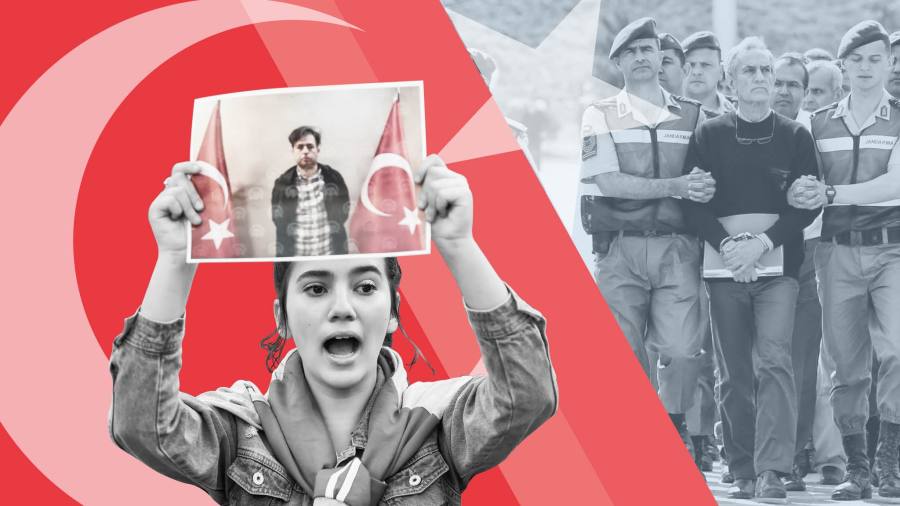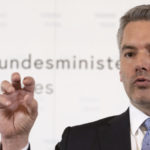Just over a year ago, Turkish citizen Harun Celik was released from an Albanian prison and whisked away to the airport. Hours later he was back in Turkey, where state media boasted that he had been returned in an operation carried out by the Turkish intelligence services.
Mr Celik, a teacher, had been arrested by Albanian authorities in July 2019 for trying to enter the country on a forged visa. But in Turkey he was wanted for his alleged role as a senior figure in the shadowy Gulen movement that stands accused of orchestrating a violent attempted coup in July 2016.
His mysterious journey — reminiscent of the highly contentious extraordinary renditions conducted by the CIA in the wake of the 9/11 terror attacks — is the latest in a string of extractions of Turkish citizens across the Balkans and other nations that are dependent on Ankara for financial, political or humanitarian support.
It is part of an assertive, sometimes uncompromising foreign policy by President Recep Tayyip Erdogan that has empowered the Turkish intelligence service and caused alarm among the country’s traditional western allies. Turkey and other authoritarian powers, such as Russia and China, view the Balkans as strategic because of the region’s proximity to the EU.
Turkey has been involved in at least 60 renditions from 17 countries over the past three and a half years, according to the US-based democracy watchdog group Freedom House. Its definition includes both abductions by Turkish intelligence and deportations where there was little or no legal due process. The Turkish justice minister said in 2019 that 107 alleged Gulenists had been brought back to Turkey from abroad.
“Turkey has done illegal renditions from more countries in the last six years than any other country in the world,” said Nate Schenkkan, the group’s Director of Research Strategy. “It will never end, not as long as Erdogan is in power . . . this is such a high priority for them that they will sacrifice other foreign policy goals.”

While the Albanian government has publicly denied all involvement in Mr Celik’s removal, several current and former officials from across the Balkans told the Financial Times that they had faced “constant” pressure from Turkey to comply with their crackdown on alleged coup plotters or risk consequences. Turkey is a major trading partner and is heavily involved in major infrastructure projects across the Balkans, where it has financed construction of some of the region’s largest mosques.
“Turkey chose the Balkans as a battleground in the fight against the Gulen movement,” said Asli Aydintasbas of the European Council on Foreign Relations. “The region is symbolically very important,” given that much of it was ruled from Istanbul during the Ottoman Empire, she said. “But it is also because they can.”
There is broad cross-party consensus in Turkey that acolytes of Fethullah Gulen, an exiled 79-year-old preacher, were behind the insurrection on 15 July 2016 that left 251 people dead. Mr Gulen, who lives in exile in the mountains of Pennsylvania, denies ordering a coup.
But Ankara has struggled to persuade international partners, many of them sharply critical of a post-putsch crackdown that saw tens of thousands arrested and at least 130,000 lose their jobs, to help them pursue alleged Gulenists. In the UK, a London court refused a Turkish request to extradite an exiled business tycoon. The US, citing a lack of evidence, has proved reluctant to begin extradition proceedings against Mr Gulen himself.
For some other nations, however, it has been harder to resist the long arm of the Turkish intelligence services, known by the acronym MIT.
In Mr Celik’s case, the incident followed years of diplomatic pressure on Tirana to hand over alleged Gulenists and close or change the ownership of Gulenist-run schools and universities.
One former senior Albanian official told the FT that Ankara had sent a list of hundreds of names of alleged supporters of Mr Gulen whom it hoped to have returned to Turkey.
An Albanian government official said that while Tirana had sought to resist Turkish demands, the timing of Mr Celik’s removal appeared linked to a Turkish promise of millions in aid after a devastating earthquake struck Albania in November 2019. “This is transactional diplomacy,” the official said. The Turkish government did not respond to a request for comment on the accusation. In March, five senior UN officials sent a letter to the Albanian government expressing concern about Mr Celik’s deportation.
Albanian premier Edi Rama, who last week paid a two-day visit to Ankara, dismissed the outcry over Mr Celik’s extradition. “We have had no pressure from Turkey and this extradition has been politicised beyond any imagination from those who want to fight Turkey,” he said in an interview with the Financial Times last year. But he offered no explanation as to how and why Mr Celik was released from a government-run prison and ended up on an Air Albania flight to Istanbul.
Speaking during Mr Rama’s visit last week, Mr Erdogan said that the two countries were “of one mind” on the threat posed by Gulenists.
Other nations in the Balkans have also found themselves caught up in the fall out from the failed coup.
In 2018, the then Kosovan prime minister, Ramush Haradinaj, dismissed officials after six Turkish citizens were taken to Turkey in an operation that Mr Erdogan said had been conducted by MIT “in co-ordination with Kosovo intelligence”. Mr Haradinaj said it took place without his knowledge.
Turkey is one of the top three investors in Kosovo and owns Kosovo’s main airport as well as the power company. In a report published in September, the UN Human Rights Council said the Kosovo Intelligence Agency had “effectively kidnapped” the six men and referred the case to a special UN rapporteur for further inquiry.
Also in 2018, Moldova handed over seven Turkish nationals teaching at private schools affiliated with the Gulen movement. Two months later, both countries signed an agreement to boost trade and approved a €10m renovation to the presidential palace in Chisinau. The European Court of Human Rights later ruled the deportations had violated their human rights.
Such rulings mean little to Ankara, said Mr Schenkkan. “The message is that Turkey makes its own rules and will carve out its own space according to its own preferences no matter what international norms or laws might say — just like the great powers do,” he said.
Mr Celik, meanwhile, has spent the past 12 months in Turkey’s high security Silivri prison to the west of Istanbul. In early December, the 42-year-old was sentenced to eight years in jail after being convicted of membership of a terrorist organisation.
“The Turkish media said that he had been ‘parcelled up’ and brought back to Turkey,” said a family member, who asked not to be named. “He is not a present to be given from one country to another.”
Source: FT







